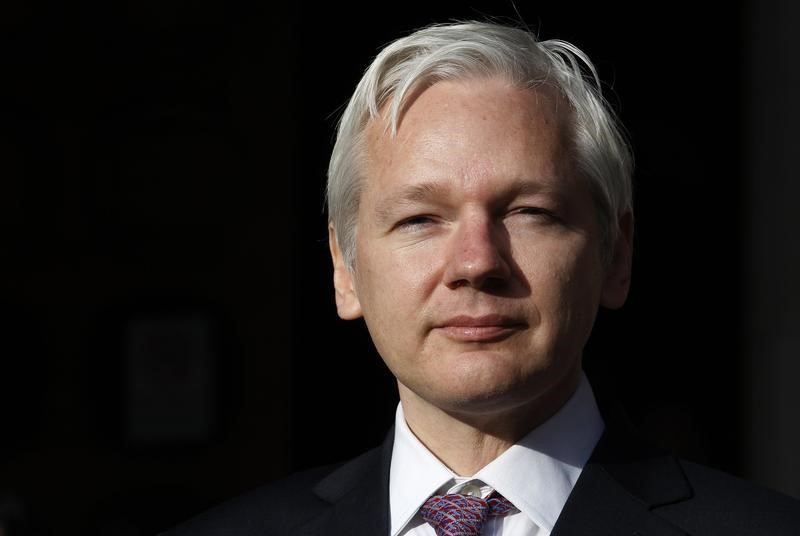LONDON, Oct 12 (Reuters) - London's cash-strapped police will no longer keep officers stationed outside the Ecuadorean embassy to catch WikiLeaks founder Julian Assange, who has been holed up inside for over three years, the force said on Monday.
However, the police said they would maintain a "covert plan" to arrest Assange, 44, who entered the embassy in June 2012 to avoid being extradited to Sweden, where he is wanted for questioning over a rape allegation, which he denies.
Assange says he fears Sweden will extradite him to the United States where he could be put on trial over WikiLeaks' publication of classified military and diplomatic documents five years ago, one of the largest information leaks in U.S. history.
If he leaves, he faces immediate arrest for breaching bail conditions. London's Metropolitan Police Service (MPS) has guarded the embassy round the clock for the last three years at an estimated cost of 12.6 million pounds ($19 million).
"Like all public services, MPS resources are finite," it said in a statement. "With so many different criminal, and other, threats to the city it protects, the current deployment of officers is no longer believed proportionate."
The operation to arrest Australian-born Assange would however continue, it said.
"Whilst no tactics guarantee success in the event of Julian Assange leaving the embassy, the MPS will deploy a number of overt and covert tactics to arrest him," it added without elaborating.
The decision was taken after discussions with the Home Office (interior ministry) and the Foreign Office, it said.
Britain has accused Ecuador of preventing the course of justice by allowing Assange to remain in its embassy in the upmarket central London area of Knightsbridge. ID:nL5N10O3LM
Britain's Foreign Office said the head of its diplomatic service had summoned the Ecuadorean ambassador on Monday to "register once again our deep frustration at the protracted delay".
"The UK has been absolutely clear since June 2012 that we have a legal obligation to extradite Assange to Sweden. That obligation remains today," a Foreign Office spokesman said.
